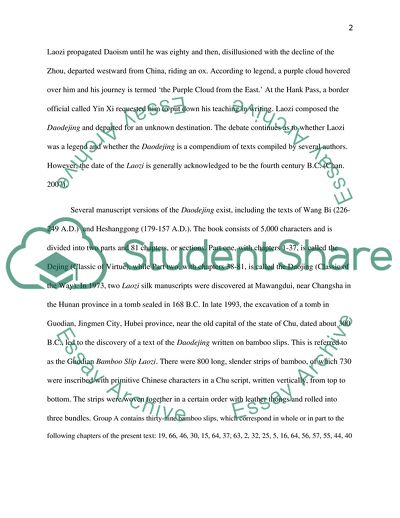Cite this document
(The Daodejings View of the Ideal State Literature review, n.d.)
The Daodejings View of the Ideal State Literature review. https://studentshare.org/philosophy/1712438-critically-discuss-laozis-idea-on-ideal-state-and-good-governance
The Daodejings View of the Ideal State Literature review. https://studentshare.org/philosophy/1712438-critically-discuss-laozis-idea-on-ideal-state-and-good-governance
(The Daodejings View of the Ideal State Literature Review)
The Daodejings View of the Ideal State Literature Review. https://studentshare.org/philosophy/1712438-critically-discuss-laozis-idea-on-ideal-state-and-good-governance.
The Daodejings View of the Ideal State Literature Review. https://studentshare.org/philosophy/1712438-critically-discuss-laozis-idea-on-ideal-state-and-good-governance.
“The Daodejings View of the Ideal State Literature Review”. https://studentshare.org/philosophy/1712438-critically-discuss-laozis-idea-on-ideal-state-and-good-governance.


